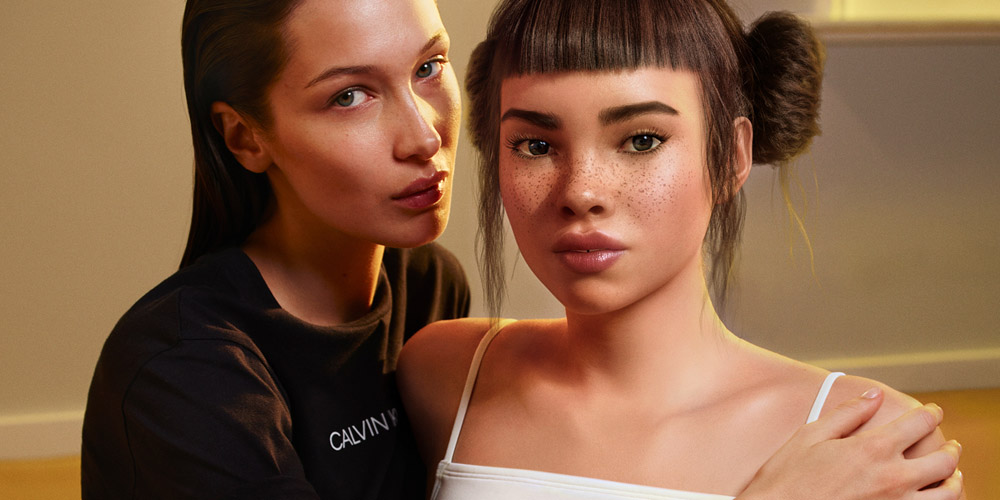A new wave of digital influence
Artificial Intelligence (AI) influencers are rapidly evolving with leading brands like Prada, Chanel, Red Bull, Calvin Klein, and Tinder all using AI influencers for online promotions. Not only are they reshaping the concept of influence but also setting new trends in marketing, entertainment, and beyond.
An AI influencer is an artificial intelligence entity that has been programmed to create content and engage with audiences across social media platforms. They have been purpose-built to promote certain brands, products, or services, and are typically associated with the regular human influencer (Source: Goat Agency). AI influencers offer a level of consistency and availability, along with innovative and cost-effective strategies for brands to engage with consumers, that traditional human influencers can’t match. This is indicated in the Influencer Marketing Hub’s 2023 Benchmark Report, with 60% of marketers already using or planning to use AI influencers in their marketing campaigns.
Spotlight on AI influencer: Lil Miquela
Lil Miquela, also known as Miquela Sousa, stands out as a prime example of AI influencer success. Created by the Los Angeles-based startup Brud (Sequoia Capital-backed), Lil Miquela has gained millions of followers on social media and collaborated with high-profile brands like Prada. Notably, she ‘attended’ the 2019 Coachella festival and later, stirred conversations with her appearance alongside real-life model Bella Hadid in a Calvin Klein campaign, blurring the realms of digital and reality. She also released a single, “Not Mine”, in 2017 and debuted her first music video at Lollapalooza’s online festival. Lil Miquela exemplifies how AI influencers uniquely connect with audiences, signalling their growing mainstream acceptance.
Lil Miquela’s growth has already attracted M&A activity, with Brud being acquired by Dapper Labs in October 2021. As this technology develops, we can expect more moves from acquirers to build out this capability.
A new chapter in creative AI with the launch of Open AI’s Sora
Open AI’s recent launch of Sora, a text-to-video AI model, marks a significant leap in AI-driven creative potential. It offers influencers like Lil Miquela enhanced capabilities to produce more dynamic and immersive content, potentially allowing for a broader range of storytelling and engagement with her audience. This week, OpenAI’s CEO, Sam Altman, put a call out on X for people to share: “captions for videos you’d like to see and we’ll start making some”, emphasising Sora’s role in shaping future marketing narratives and audience interactions.
AI influencers and Sora’s impact on content authenticity and creation poses intriguing questions, especially as the distinction between real and AI-generated content blurs. In a world filled with digitally altered content, what becomes of authenticity’s role and value?
What’s next?
There’s no denying that the integration of AI influencers and models like Sora will redefine the digital world. However, this shift highlights the need for ethical and regulatory frameworks to address emerging challenges around AI transparency, data privacy, and the impact on the creative environment. Initiatives like TikTok’s upcoming feature to automatically label AI-generated content reflects steps towards greater transparency. The continuous evolution of AI influencers and their integration into broader marketing strategies will present both opportunities and challenges for brands and marketers alike.
If you have any questions, or would like to chat about your upcoming M&A plans, please get in touch at hello@wypartners.com.


